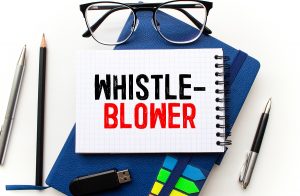In a recent unpublished opinion, New Jersey’s Appellate Division found a teacher’s objection that his school did not sufficiently discipline a student for threatening to shoot another student could be protected from retaliation by the Conscientious Employee Protection Act (“CEPA”).
 CEPA is a broad New Jersey whistleblower law that prohibits employers from retaliating against an employee for, among other things, objecting to an activity or practice of the employer that the employee reasonably believes violates a law, a rule promulgated pursuant to law, or is incompatible with a clear mandate of public policy concerning public health, safety or welfare or protection of the environment.
CEPA is a broad New Jersey whistleblower law that prohibits employers from retaliating against an employee for, among other things, objecting to an activity or practice of the employer that the employee reasonably believes violates a law, a rule promulgated pursuant to law, or is incompatible with a clear mandate of public policy concerning public health, safety or welfare or protection of the environment.
Phillip Eisenstein is a physical education teacher for the New York Avenue School in Atlantic City. He witnessed a student, K.D., bullying other students. After Mr. Eisenstein intervened, K.D. threatened to get his uncle’s gun and come back the next day to shoot one of the other students. Mr. Eisenstein reported this to the school’s principal, who said he would handle it.
 New Jersey Employment Lawyer Blog
New Jersey Employment Lawyer Blog










